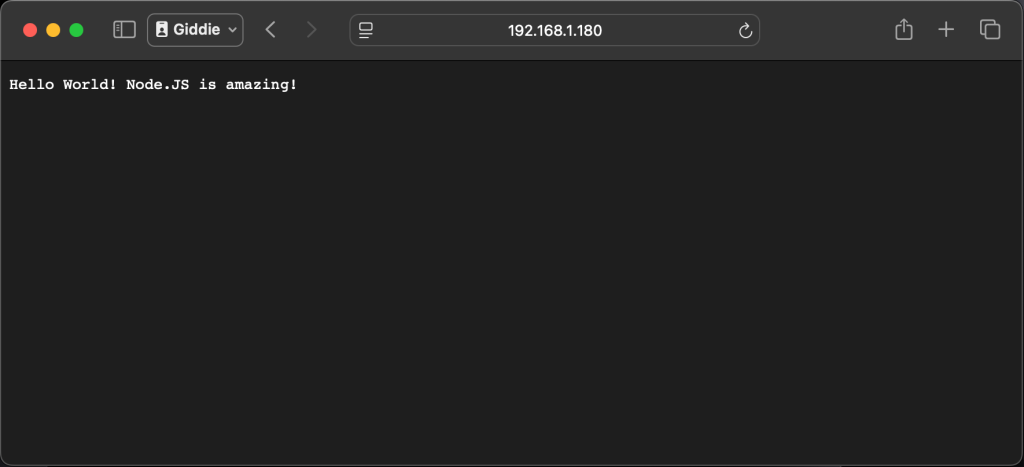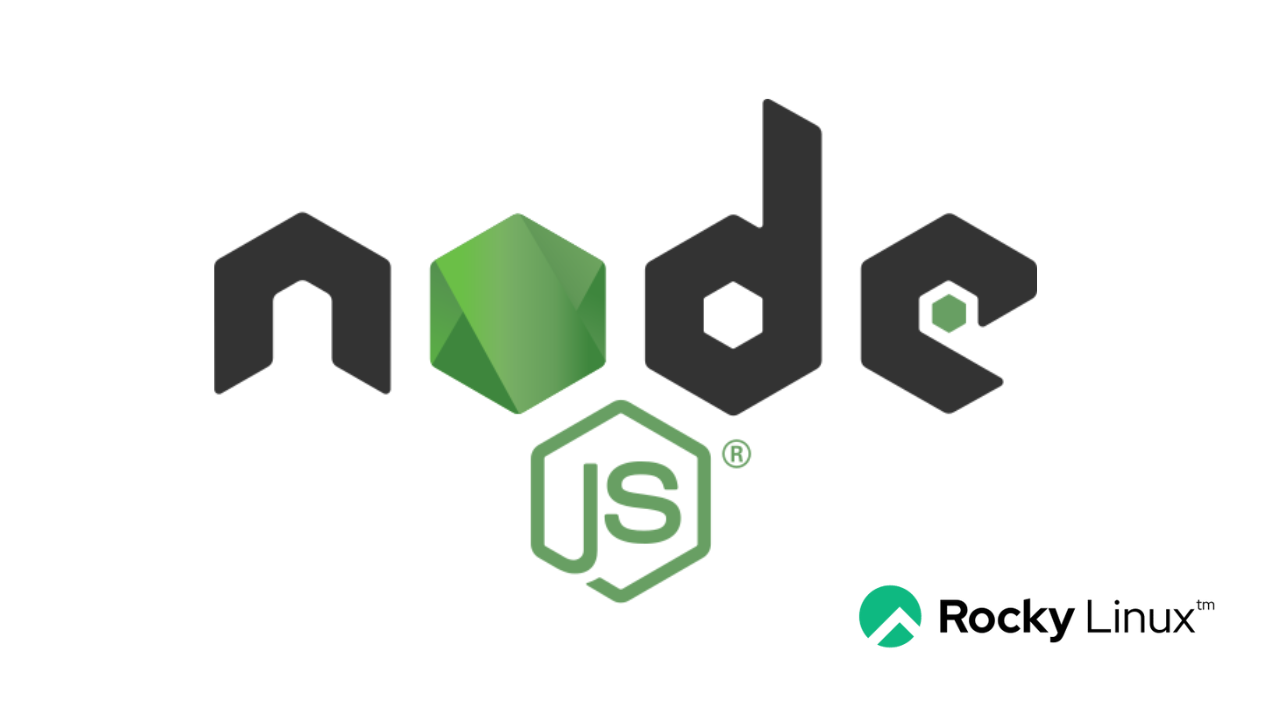Programming is one of the popular skills in the tech world today. It is defined as executing a set of instructions written in a language that a computer can understand. These instructions are used to perform a specific task, for example adding numbers, displaying some information e.t.c. Humans understand natural languages such as English, Fench e.t.c. Computers understand instructions written in a specific syntax known as a programming language.
Programming was started in 1883 by Charles Babbage after developing a device to compute Bernoulli’s number. Later in 1949, a low-level assembly language was developed. This was then followed by Autocode, the first compiled computer programming language developed by Alick Glennie in 1952. In 1957, John Backus and IBM developed Fortran which was then followed by ALGOL in 1958 and COBOL in 1959. Visual Basic previously known as BASIC was developed in 1964. In 1972, the C programming language was developed. This is a general programming language that is assumed to be the mother of almost all higher-level programming languages such as Limbo, C#, D, Go, LPC, Perl, Python, PHP, Java, JavaScript, and the Unix’s C shell.
JavaScript is a lightweight, dynamic scripting language commonly used to develop complex web pages. JavaScript was first developed by Netscape in 1995 with the name LiveScript. It was later renamed probably due to the excitement generated by Java. It offers a lot of amazing features such as animated 2D/3D graphics, cross-platform, integration with Java and HTML e.t.c
NodeJS is a free and open-source asynchronous event-driven JavaScript runtime that is built on Chrome’s V8 JavaScript engine. It finds use in several areas such as:
- Microservices
- Server-side proxy
- Scripting and automation
- Build highly scalable network applications by offering both backend and full-stack front-end solutions.
- System Monitoring Dashboard
- Chatbots
- Big Data and Analytics
There are several releases of Node.js available for use. The major Node.js versions enter the current release status for six months. This gives the library authors time to add support for them. After those six months, the odd-numbered releases such as 9,11 become unsupported and the even-numbered releases such as 22,20,18 move to the active LTS status.
Step 1 – Install Node.js 22,20,18 on Rocky Linux 9
By following this guide to the end, you should be able to install Node.js 22,20,18 on Rocky Linux 9. In this guide, we will offer two options on how to install Node.js:
- Using AppStream Repositories
- Using Nodesource Repositories
- Using NVM
Option 1 – Install Node.js 22,20,18 on Rocky Linux 9 using AppStream Repositories.
Rocky Linux AppStream repositories provide Node.JS as a module called nodejs. Therefore, there’s no need to add or enable any third-party repositories. The downside is that the versions provided are not up to date, but will nonetheless get the job done.
To check out the available versions provided, run the command:
[root@rocky9 ~]# sudo dnf module list nodejs
Last metadata expiration check: 0:45:49 ago on Sat 04 Jan 2025 08:29:41 PM EAT.
Rocky Linux 9 - AppStream
Name Stream Profiles Summary
nodejs 18 common [d], development, minimal, s2i Javascript runtime
nodejs 20 common [d], development, minimal, s2i Javascript runtime
nodejs 22 common [d], development, minimal, s2i Javascript runtime
Hint: [d]efault, [e]nabled, [x]disabled, [i]nstalledA. Install Node.js 18 LTS on Rocky Linux 9
Rocky Linux 9 released recently provides Node.js 20 LTS in the AppStream repositories and can be installed with:
sudo dnf module install nodejs:18 -yDependency Tree:
Last metadata expiration check: 0:53:31 ago on Mon 23 Dec 2024 10:42:58 PM EAT.
Dependencies resolved.
==========================================================================================================================================================================================================
Package Architecture Version Repository Size
==========================================================================================================================================================================================================
Installing group/module packages:
nodejs x86_64 1:18.20.4-1.module+el9.4.0+25542+b1e8296f appstream 13 M
npm x86_64 1:10.7.0-1.18.20.4.1.module+el9.4.0+25542+b1e8296f appstream 1.8 M
Installing weak dependencies:
nodejs-docs noarch 1:18.20.4-1.module+el9.4.0+25542+b1e8296f appstream 7.8 M
nodejs-full-i18n x86_64 1:18.20.4-1.module+el9.4.0+25542+b1e8296f appstream 8.4 M
Installing module profiles:
nodejs/common
Enabling module streams:
nodejs 18
Transaction Summary
==========================================================================================================================================================================================================
Install 4 Packages
Total download size: 31 M
Installed size: 167 M
Is this ok [y/N]: yOnce complete, verify the installation using the command:
$ node -v
v18.20.4Also, check the npm version:
$ npm -v
10.7.0B. Install Node.js 20 LTS on Rocky Linux 9
Rocky Linux 9 released recently provides Node.js 20 LTS in the AppStream repositories and can be installed with:
sudo dnf reset module nodejs -y && sudo dnf module install -y nodejs:20Dependency Tree:
Last metadata expiration check: 1:28:15 ago on Sat 04 Jan 2025 08:29:41 PM EAT.
Dependencies resolved.
==========================================================================================================================================================================================================
Package Architecture Version Repository Size
==========================================================================================================================================================================================================
Installing group/module packages:
nodejs x86_64 1:20.17.0-1.module+el9.5.0+29018+840bbf8d appstream 14 M
npm x86_64 1:10.8.2-1.20.17.0.1.module+el9.5.0+29018+840bbf8d appstream 1.9 M
Installing weak dependencies:
nodejs-docs noarch 1:20.17.0-1.module+el9.5.0+29018+840bbf8d appstream 8.2 M
nodejs-full-i18n x86_64 1:20.17.0-1.module+el9.5.0+29018+840bbf8d appstream 8.4 M
Installing module profiles:
nodejs/common
Enabling module streams:
nodejs 20
Transaction Summary
==========================================================================================================================================================================================================
Install 4 Packages
Total download size: 33 M
Installed size: 176 M
Is this ok [y/N]: yOnce complete, verify the installation using the command:
$ node -v
v20.17.0Also, check the npm version:
$ npm -v
10.8.2C. Install Node.js 22 LTS on Rocky Linux 9
Node.js 20 is an LTS version and is provided in the Rocky Linux 9 AppStream repositories and can be installed using the command below:
sudo dnf module reset nodejs -y && sudo dnf module install -y nodejs:22Dependency Tree:
Last metadata expiration check: 1:32:32 ago on Sat 04 Jan 2025 08:29:41 PM EAT.
Dependencies resolved.
==========================================================================================================================================================================================================
Package Architecture Version Repository Size
==========================================================================================================================================================================================================
Installing group/module packages:
nodejs x86_64 1:22.11.0-1.module+el9.5.0+29662+3d9e69a6 appstream 1.9 M
npm x86_64 1:10.9.0-1.22.11.0.1.module+el9.5.0+29662+3d9e69a6 appstream 2.1 M
Installing dependencies:
nodejs-libs x86_64 1:22.11.0-1.module+el9.5.0+29662+3d9e69a6 appstream 19 M
Installing weak dependencies:
nodejs-docs noarch 1:22.11.0-1.module+el9.5.0+29662+3d9e69a6 appstream 8.5 M
nodejs-full-i18n x86_64 1:22.11.0-1.module+el9.5.0+29662+3d9e69a6 appstream 8.4 M
Installing module profiles:
nodejs/common
Enabling module streams:
nodejs 22
Transaction Summary
==========================================================================================================================================================================================================
Install 5 Packages
Total download size: 40 M
Installed size: 215 M
Is this ok [y/N]: yVerify the installation:
$ node -v
v22.11.0Option 2 – Install Node.js 22,20,18 on Rocky Linux 9 using AppStream Repositories.
The second option is to install Node.JS from the Node.JS binary package which is provided by nodesource. This provides the latest version of Node.JS which, at the time of writing this guide, is Node.JS v23.5.0.
A. Install Node.js 18 LTS on Rocky Linux 9
##Download the latest NodeSource repository script.
curl -fsSL https://rpm.nodesource.com/setup_18.x -o nodesource_setup.sh
##Run the NodeSource repository installation script.
sudo -E bash nodesource_setup.sh
##Install Node.js and NPM on your server.
sudo dnf install nodejs -y
##Check the node and npm versions
node -v
npm -vB. Install Node.js 20 LTS on Rocky Linux 9
##Download the latest NodeSource repository script.
curl -fsSL https://rpm.nodesource.com/setup_20.x -o nodesource_setup.sh
##Run the NodeSource repository installation script.
sudo -E bash nodesource_setup.sh
##Install Node.js and NPM on your server.
sudo dnf install nodejs -y
##Check the node and npm versions
node -v
npm -vC. Install Node.js 22 LTS on Rocky Linux 9
##Download the latest NodeSource repository script.
curl -fsSL https://rpm.nodesource.com/setup_22.x -o nodesource_setup.sh
##Run the NodeSource repository installation script.
sudo -E bash nodesource_setup.sh
##Install Node.js and NPM on your server.
sudo dnf install nodejs -y
##Check the node and npm versions
node -v
npm -vOption 3 – Install Node.js 22,20,18 using NVM
Node Version Manager abbreviated as NVM allows one to install a specific version of Node.JS on their system. This is accomplished using the below steps.
First, install NVM on Rocky Linux 9:
curl -o- https://raw.githubusercontent.com/nvm-sh/nvm/master/install.sh | bashExecution output:
% Total % Received % Xferd Average Speed Time Time Time Current
Dload Upload Total Spent Left Speed
100 16631 100 16631 0 0 31921 0 --:--:-- --:--:-- --:--:-- 31921
=> Downloading nvm as script to '/root/.nvm'
=> Appending nvm source string to /root/.bashrc
=> Appending bash_completion source string to /root/.bashrc
=> You currently have modules installed globally with `npm`. These will no
=> longer be linked to the active version of Node when you install a new node
=> with `nvm`; and they may (depending on how you construct your `$PATH`)
=> override the binaries of modules installed with `nvm`:
/usr/lib
├── [email protected]
=> If you wish to uninstall them at a later point (or re-install them under your
=> `nvm` node installs), you can remove them from the system Node as follows:
$ nvm use system
$ npm uninstall -g a_module
=> Close and reopen your terminal to start using nvm or run the following to use it now:
export NVM_DIR="$HOME/.nvm"
[ -s "$NVM_DIR/nvm.sh" ] && \. "$NVM_DIR/nvm.sh" # This loads nvm
[ -s "$NVM_DIR/bash_completion" ] && \. "$NVM_DIR/bash_completion" # This loads nvm bash_completionSource your profile:
source ~/.bashrcVerify the installation:
$ nvm --version
0.40.1A. Install Latest NodeJS Version using NVM
Now, you can use NVM to install any version of Node.js on your Rocky Linux 9 system. To install the latest version of Node.js, use the command:
nvm install nodeSample Output:
Downloading and installing node v23.5.0...
Downloading https://nodejs.org/dist/v23.5.0/node-v23.5.0-linux-x64.tar.xz...
################################################################################################################################################################################################### 100.0%
Computing checksum with sha256sum
Checksums matched!
Now using node v23.5.0 (npm v10.9.2)
Creating default alias: default -> node (-> v23.5.0)Currently, the latest version is Node.js 18. This version has been installed and set as the default Node.js version for use.
Verify the installation:
$ node --version
v23.5.0B. Install Node.js LTS version
You can also use NVM to install the latest LTS version using the command:
$ nvm install --lts
Installing latest LTS version.
Downloading and installing node v22.12.0...
Downloading https://nodejs.org/dist/v22.12.0/node-v22.12.0-linux-x64.tar.xz...
################################################################################################################################################################################################### 100.0%
Computing checksum with sha256sum
Checksums matched!
Now using node v22.12.0 (npm v10.9.0)
Creating default alias: default -> lts/* (-> v22.12.0)The current LTS version is Node.js 16. Verify the installation.
$ node --version
v22.12.0C. Install a Specific Node.js Version
It is p[possible to install any other preferred Node.js version, for example, Node.js 14 using the command:
$ nvm install 18
Downloading and installing node v18.20.5...
Downloading https://nodejs.org/dist/v18.20.5/node-v18.20.5-linux-x64.tar.xz...
################################################################################################################################################################################################### 100.0%
Computing checksum with sha256sum
Checksums matched!
Now using node v18.20.5 (npm v10.8.2)Verify the installation.
$ node --version
v18.20.5Step 2 – Manage Multiple Node.js Versions
NVM allows one to manage multiple Node.js versions available on the system. Begin by listing the available versions:
[root@rocky9 ~]# nvm ls
-> v18.20.5
v22.12.0
v23.5.0
default -> lts/* (-> v22.12.0)
iojs -> N/A (default)
unstable -> N/A (default)
node -> stable (-> v23.5.0) (default)
stable -> 23.5 (-> v23.5.0) (default)
lts/* -> lts/jod (-> v22.12.0)
lts/argon -> v4.9.1 (-> N/A)
lts/boron -> v6.17.1 (-> N/A)
lts/carbon -> v8.17.0 (-> N/A)
lts/dubnium -> v10.24.1 (-> N/A)
lts/erbium -> v12.22.12 (-> N/A)
lts/fermium -> v14.21.3 (-> N/A)
lts/gallium -> v16.20.2 (-> N/A)
lts/hydrogen -> v18.20.5
lts/iron -> v20.18.1 (-> N/A)
lts/jod -> v22.12.0From the above output, the default Node.js version is v18.20.5. This is the version used in the current shell. You can switch to another Node.js version, for example, version 18 with the command:
$ nvm use 23
Now using node v23.5.0 (npm v10.9.2)You can also set this version as the default Node.js version:
$ nvm alias default 23
default -> 23 (-> v23.5.0)Verify the made changes:
$ node -v
v23.5.0Step 3 – Getting Started with Node.js
To be able to use the installed Node.js version you have to install the required development modules required by npm to build native modules.
sudo dnf install gcc-c++ make -y Once installed, you are set to build the desired web applications with Node.js. In this guide, we will demonstrate this by building a simple Hello World web page.
vim Helloworld.jsAdd the below content to the file:
const http = require('http');
const hostname = '0.0.0.0';
const port = 3000;
const server = http.createServer((req, res) => {
res.statusCode = 200;
res.setHeader('Content-Type', 'text/plain');
res.end('Hello World! Node.JS is amazing!');
});
server.listen(port, hostname, () => {
console.log(`Server running at http://${hostname}:${port}/`);
});Save the file and allow the set port through the firewall:
sudo firewall-cmd --zone=public --add-port=3000/tcp --permanent
sudo firewall-cmd --reloadNow start the Node.js application:
$ node Helloworld.js
Server running at http://0.0.0.0:3000/Access the web page on the browser using the URL http://IP_Address:3000

Step 4 – Manage the Node.js application
The created Node.js application does not run in the background. It is possible to use the pm2 global NPM module to manage the Node.js application.
Begin by installing pm2
npm install -g pm2Once the installation is complete, configure pm2 to start on boot automatically.
[root@rocky9 ~]# pm2 startup
-------------
__/\\\\\\\\\\\\\____/\\\\____________/\\\\____/\\\\\\\\\_____
_\/\\\/////////\\\_\/\\\\\\________/\\\\\\__/\\\///////\\\___
_\/\\\_______\/\\\_\/\\\//\\\____/\\\//\\\_\///______\//\\\__
_\/\\\\\\\\\\\\\/__\/\\\\///\\\/\\\/_\/\\\___________/\\\/___
_\/\\\/////////____\/\\\__\///\\\/___\/\\\________/\\\//_____
_\/\\\_____________\/\\\____\///_____\/\\\_____/\\\//________
_\/\\\_____________\/\\\_____________\/\\\___/\\\/___________
_\/\\\_____________\/\\\_____________\/\\\__/\\\\\\\\\\\\\\\_
_\///______________\///______________\///__\///////////////__
Runtime Edition
PM2 is a Production Process Manager for Node.js applications
with a built-in Load Balancer.
Start and Daemonize any application:
$ pm2 start app.js
Load Balance 4 instances of api.js:
$ pm2 start api.js -i 4
Monitor in production:
$ pm2 monitor
Make pm2 auto-boot at server restart:
$ pm2 startup
To go further checkout:
http://pm2.io/
-------------
[PM2] Init System found: systemd
Platform systemd
Template
[Unit]
Description=PM2 process manager
Documentation=https://pm2.keymetrics.io/
After=network.target
[Service]
Type=forking
User=root
LimitNOFILE=infinity
LimitNPROC=infinity
LimitCORE=infinity
Environment=PATH=/root/.nvm/versions/node/v23.5.0/bin:/root/.local/bin:/root/bin:/usr/local/sbin:/usr/local/bin:/usr/sbin:/usr/bin:/bin:/usr/local/sbin:/usr/local/bin:/usr/sbin:/usr/bin
Environment=PM2_HOME=/root/.pm2
PIDFile=/root/.pm2/pm2.pid
Restart=on-failure
ExecStart=/root/.nvm/versions/node/v23.5.0/lib/node_modules/pm2/bin/pm2 resurrect
ExecReload=/root/.nvm/versions/node/v23.5.0/lib/node_modules/pm2/bin/pm2 reload all
ExecStop=/root/.nvm/versions/node/v23.5.0/lib/node_modules/pm2/bin/pm2 kill
[Install]
WantedBy=multi-user.target
Target path
/etc/systemd/system/pm2-root.service
Command list
[ 'systemctl enable pm2-root' ]
[PM2] Writing init configuration in /etc/systemd/system/pm2-root.service
[PM2] Making script booting at startup...
[PM2] [-] Executing: systemctl enable pm2-root...
Created symlink /etc/systemd/system/multi-user.target.wants/pm2-root.service → /etc/systemd/system/pm2-root.service.
[PM2] [v] Command successfully executed.
+---------------------------------------+
[PM2] Freeze a process list on reboot via:
$ pm2 save
[PM2] Remove init script via:
$ pm2 unstartup systemdNow daemonize the created Node.js application.
pm2 start Helloworld.jsSample Output:

Save the made configurations:
[root@rocky9 ~]# pm2 save
[PM2] Saving current process list...
[PM2] Successfully saved in /root/.pm2/dump.pm2Now your application is configured to start automatically on boot. To remove the pm2 init script using the command:
[root@rocky9 ~]# pm2 unstartup systemd
[PM2] Init System found: systemd
Removed "/etc/systemd/system/multi-user.target.wants/pm2-root.service".
Removed "/etc/systemd/system/multi-user.target.wants/pm2-root.service".
[PM2] Init file disabled.Final Thoughts
That marks the end of this guide on how to install Node.js 22,20,18 on Rocky Linux 9. We have also seen how to set the Node.js version and demonstrated how to use Node.js to create a web page. I hope this was important.
See more:









